In the intricate world of financial aid, receiving a denial letter can be a disheartening experience for students and their families. This notification often brings questions and uncertainties, leaving individuals wondering how to navigate their educational financing. However, understanding the reasons behind the denial and exploring potential alternatives is crucial for moving forward. Join us as we delve deeper into the appeal process and options available, guiding you through each step of this journey.

Applicant's information and details
Financial aid denial notifications concern applicants seeking assistance to fund their education. The applicant's information typically includes the full name, student identification number, and contact details such as email address and phone number. The institution's review process assesses elements like GPA (Grade Point Average), financial need (often determined through FAFSA--Free Application for Federal Student Aid), and specific eligibility criteria of the financial aid program. Events like the submission deadline (usually in the spring semester for the following academic year) and response timelines (typically communicated within weeks after review) are essential in the notification. The denial letter often includes instructions for possible appeals or alternative funding options, pivotal for applicants relying on financial aid to attend specific universities or colleges, which may also be mentioned.
Reason for denial
Financial aid denial notifications often stem from various factors affecting eligibility. Common reasons include exceeding the income threshold, as determined by the Free Application for Federal Student Aid (FAFSA), or failure to maintain satisfactory academic progress (GPA below 2.0) as stipulated by specific institutions. In some cases, students may not meet the required enrollment status, such as being a half-time student (at least six credit hours per semester) when full-time status is necessary. Other factors could include not providing requested documentation, resulting in incomplete application status, or being enrolled in a degree program not covered by the financial aid package. Each institution will have varying criteria and guidelines, which are crucial for applicants to understand.
Appeal process information
Financial aid denial notifications can significantly impact a student's educational journey, especially when they receive unexpected news regarding funding from institutions such as universities or colleges. Typically, these notifications contain critical information about the reasons for the denial, which may include factors such as insufficient academic performance (usually a GPA below 2.0), failure to meet enrollment status (less than half-time enrollment), or missing required documentation (such as tax returns or verification forms). Many institutions offer an appeal process, allowing students to contest the decision, often within a specific timeframe (commonly 30 days from the date of denial). Students are generally encouraged to provide compelling evidence during the appeal, such as improved grades from recent coursework, extenuating circumstances like medical issues or family crises, and any documentation supporting their case. Additionally, contacting the financial aid office at the educational institution may yield insights into the appeals procedure, deadlines, and any forms required for submission. Thorough preparation and clear communication during this process can significantly enhance the likelihood of a positive outcome for students seeking to secure their financial aid.
Contact information for inquiries
Financial aid denial notifications can cause significant distress for students seeking assistance to fund their education. Taglines like "Your financial future" often resonate deeply, but receiving a denial notice can leave many feeling uncertain. Essential contact information is crucial for students wishing to inquire further about their specific situations. Typically, financial aid offices at universities such as Harvard University (established in 1636) provide telephone numbers, email addresses, or direct online chat options. Providing clarity on how to appeal or seek alternative funding solutions may also be included in the notification, offering pathways to reconsideration or further assistance. Understanding these communication channels can help students navigate their financial aid challenges more effectively.
Encouragement for future applications
In recent financial aid cycles, many applicants face challenges in securing funding for their educational pursuits. Reasons for denial can include limited institutional resources, strict eligibility criteria, or high competition among applicants. Institutions often provide feedback on applications, highlighting areas for improvement. Students are encouraged to seek additional funding sources, such as scholarships from private organizations or state programs, which frequently have more flexible criteria. Future applicants should consider enhancing their profiles by participating in extracurricular activities, volunteer work, and academic achievements, thus boosting their chances in subsequent cycles. Reapplying demonstrates persistence and commitment to achieving educational goals, crucial traits for success in academic environments.

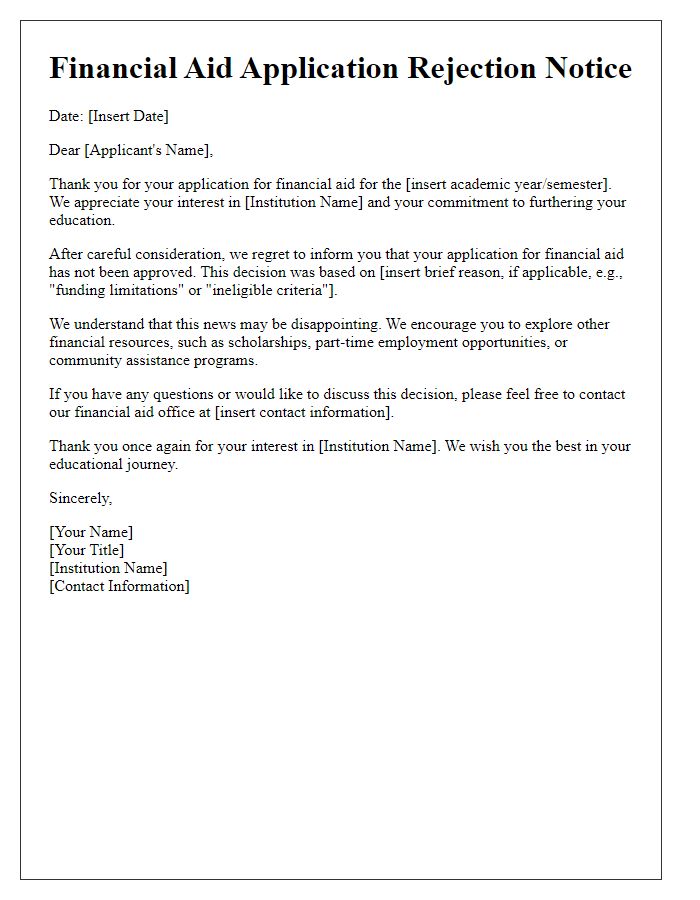
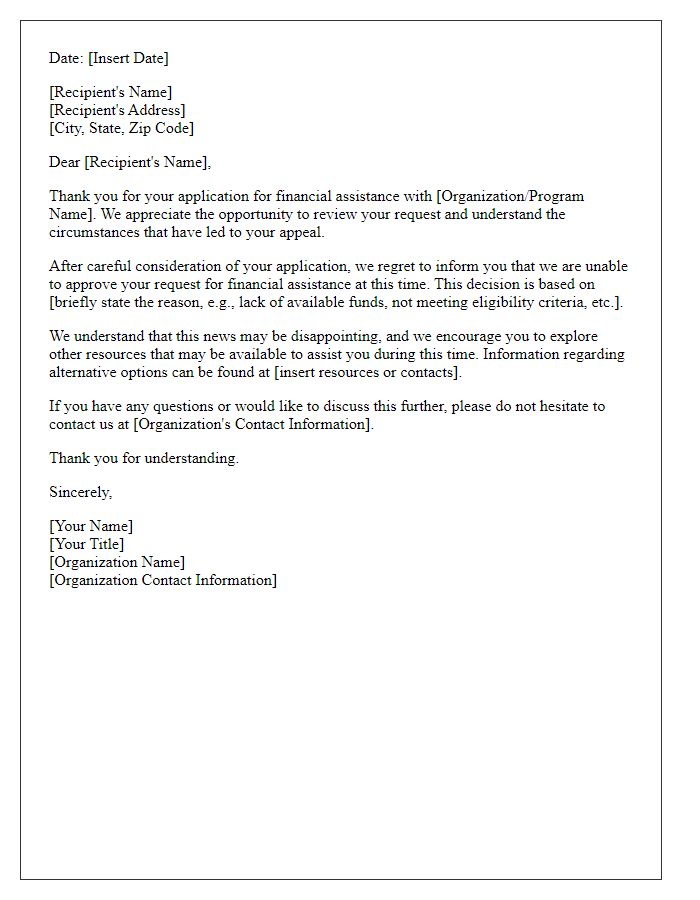
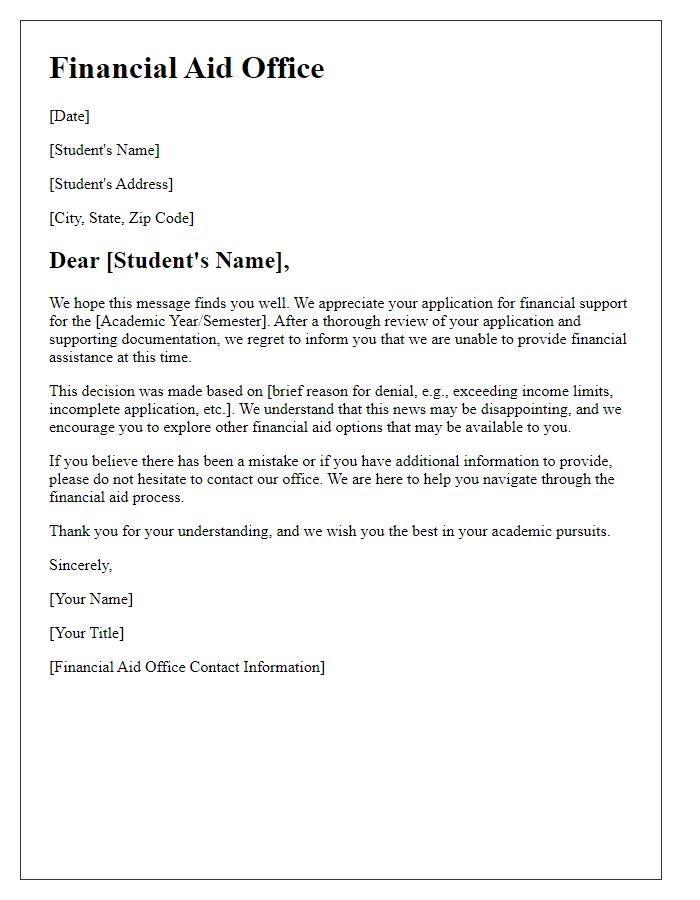
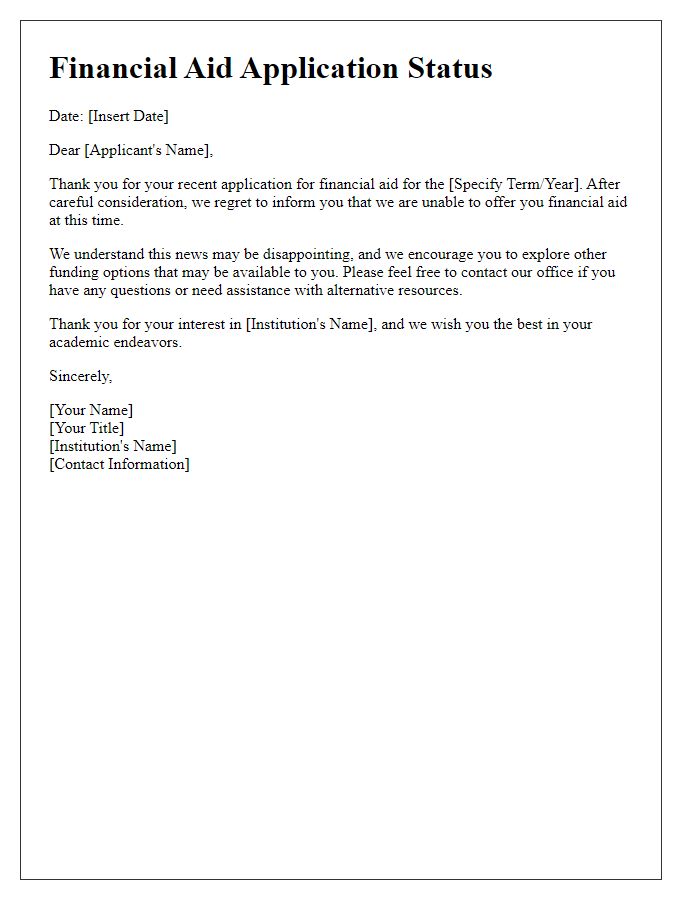

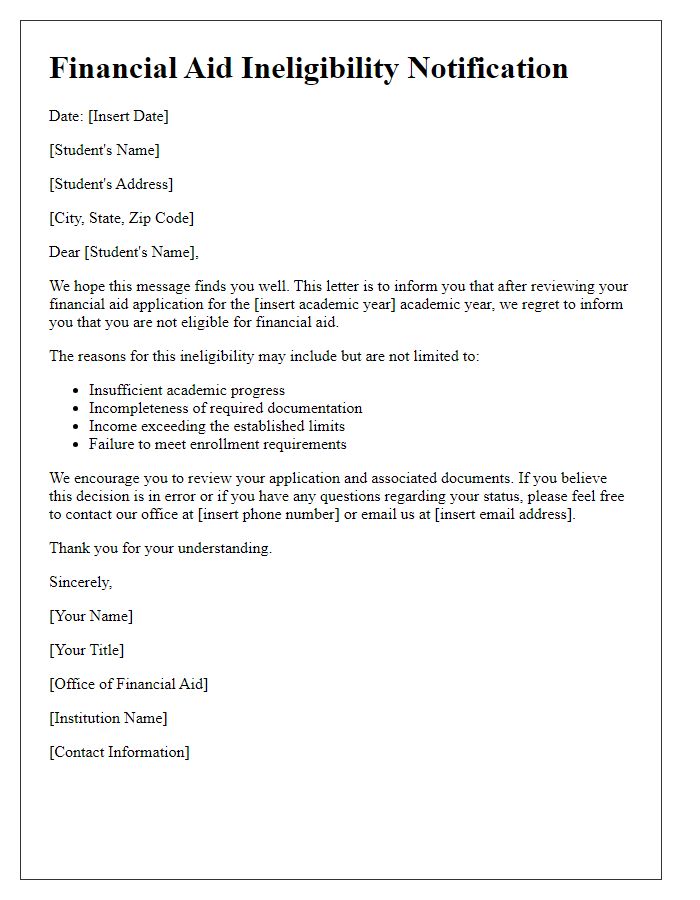
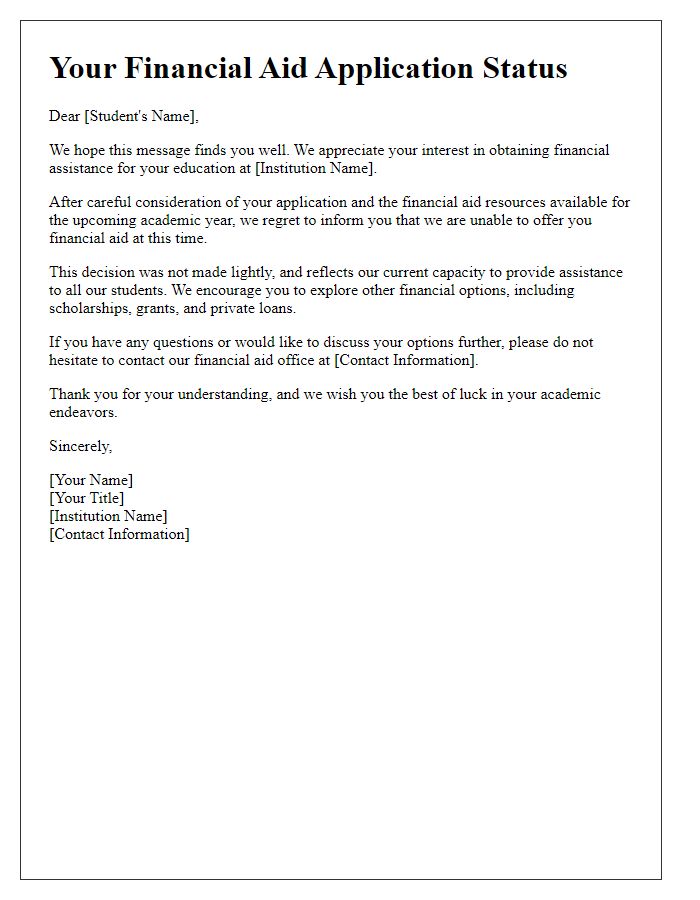
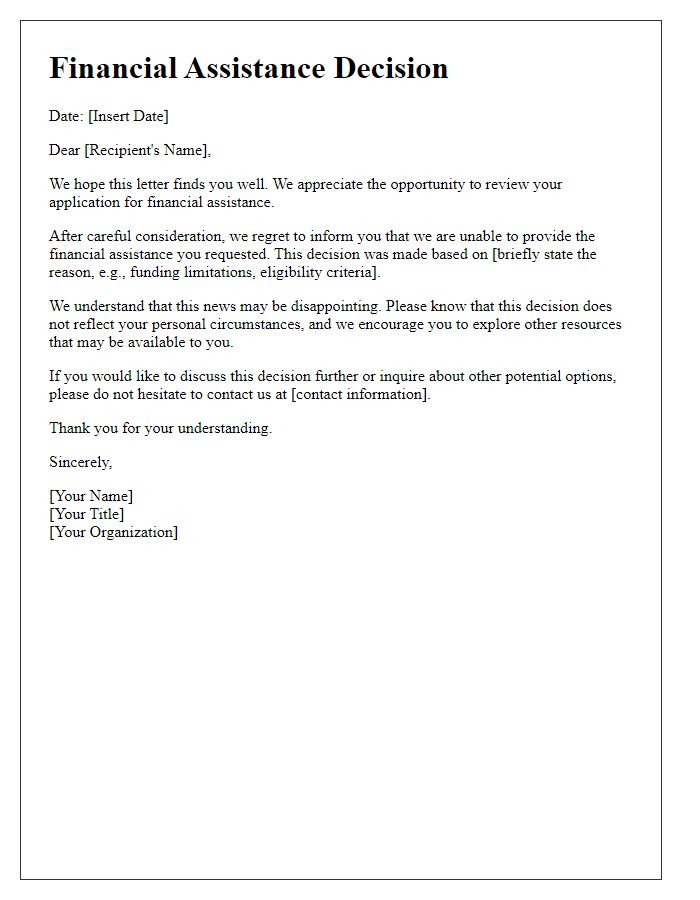
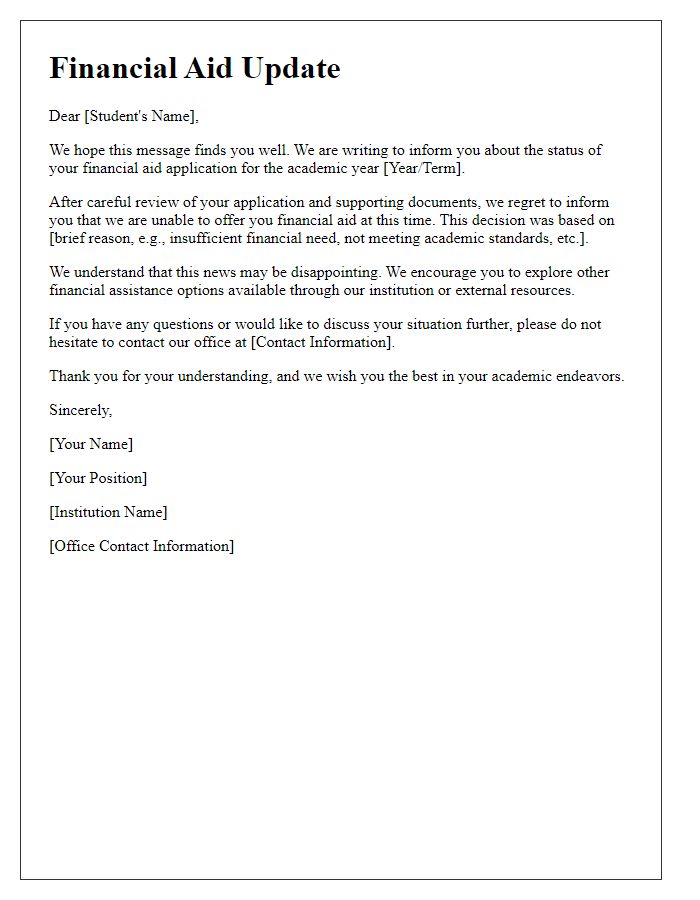
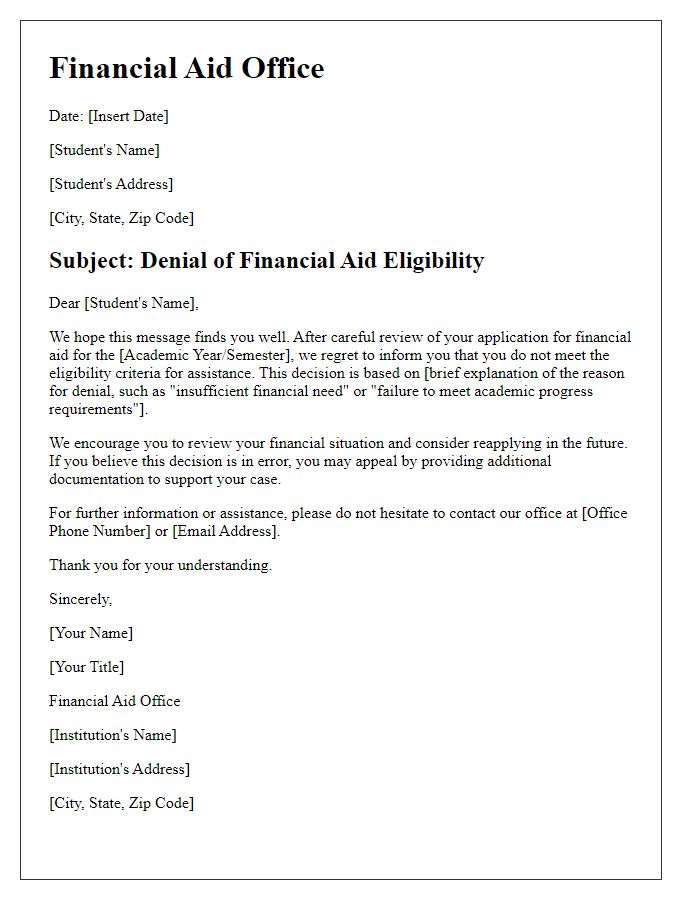


Comments